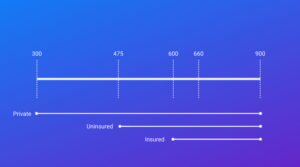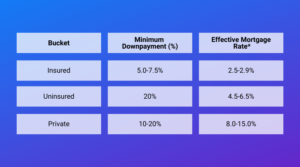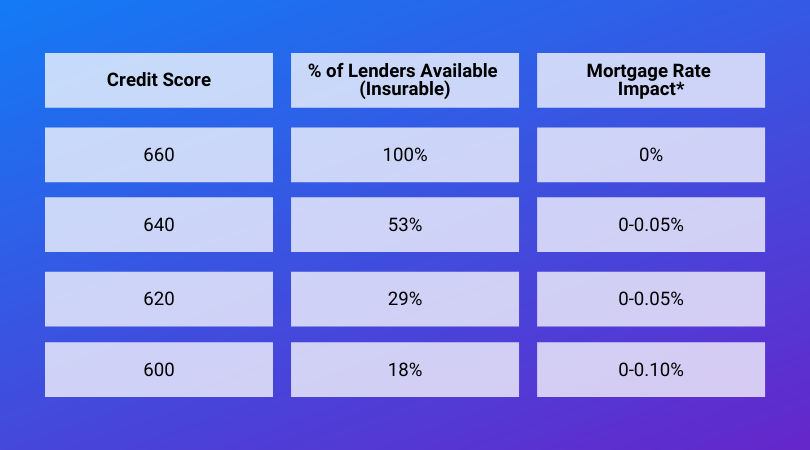As covered in our Guide to Buying a Home, how much mortgage you can afford is based on your income, your downpayment and your credit score. Credit scores are calculated by an algorithm made up of 5 things. We’ve listed them below in the order of importance:
- 35% Your payment history
- 30% Your average credit utilization (balance outstanding divided by credit limit)
- 15% The length of your credit history
- 10% Public records (ex: bankruptcies, consumer proposals, collections, etc)
- 10% Number of credit inquiries
You can read more about your credit score calculation in this Equifax article.
Does Checking Your Credit Score Lower It?
The first thing you need to understand about credit inquiries is there’s a difference between a “hard” pull and a “soft” pull. A “soft” pull occurs when you use a credit monitoring service like Credit Karma or Borrowell. This doesn’t affect your credit score. A “hard” pull is an inquiry made by a loan provider and your consent is required. Contrary to popular belief, having your credit pulled by multiple loan providers to enable you to shop around doesn’t wreck your credit score and is counted into one credit inquiry. You can read more about hard inquiries and how they’re treated here.
So why does your credit score factor into qualifying for a mortgage? Someone with a higher credit score is less likely you are to default. In fact, there’s a proven inverse relationship between higher credit scores and default rates. This means the higher your credit score, the less risky you are to the lender from a repayment standpoint and as a result you get better rates.
Credit Score Ranges and Mortgage Rate Impacts
In Canada, your credit score is usually obtained through two providers: Equifax or TransUnion. Credit scores range from 300 to 900, with the highest score (900) being the best you can possibly have and industry estimates put the average credit score around 650. You would assume that a higher credit score should always result in a better the rate, but it’s not that simple. In the graph below, the brackets underneath the scale demonstrate what credit score range you typically need to qualify for that kind of mortgage option.


*The mortgage rate impact depends on which lenders have the best offers, which is constantly changing.
When Your Credit Score Is Required
In order to pre-approve you, your mortgage representative will need to pull your credit to get your credit score and verify your debts outstanding. Many people try to avoid pulling their credit early on, but we’d strongly recommend that you do.
As discussed, the number of credit inquiries makes up a very small percentage of your score and the negative impact of pulling your credit is just a few points (which typically come back within a month or two). However, if your mortgage representative knows your credit score upfront they are best equipped to help you in the following ways:
- Your credit score will dictate things like which lenders would accept your application, how much down payment you need and if you can/can’t use certain co-applicants. All of which are material things in your mortgage application.
- If your credit score is too low, you can avoid the hassle (and potential costs) of buying a home only to later realize you don’t qualify. With enough notice and the right resources, you can actively work to increase your credit score or plan accordingly for a higher downpayment.
- If you were the victim of fraud, identify theft or there are simply errors on your credit report, clearing it up can usually takes weeks or even months. You wouldn’t want to find out that your credit has been damaged 2 weeks before your closing date, as you wouldn’t have enough time left to act and you would be forced into a much more expensive form of financing or to walk away from your deal.
So what does this mean for you? Losing a few points on your credit score is nothing compared to the potential downside of not being informed from the beginning. Each lender will have different restrictions in addition to your credit score, which your mortgage professional will be able to identify and discuss with you as part of your pre-approval.
 Alex
Alex






